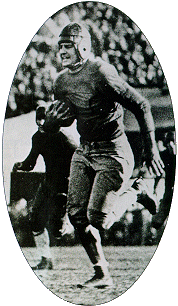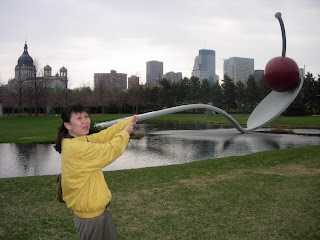 Have you ever wondered why our favorite stories tend to include an ordinary person overcoming great odds to accomplish something extraordinary? It is because the capacity and desire to be heroics reside deep within each of us. Whilst we may avoid risk, and death and passion through our culture of affluent, the seed of courage remains within. We are reminded of its presence when we watch a nice guy named Rocky Balboa beats the arrogant champ, Apollo Creed. Our hearts thrill when a young inexperience Luke Skywalker destroys the plans of the mighty Darth Vader. From a simpleton named Forest Gump to a braveheart name William Wallace, we love to see the unlikely underdog beat the odds, hoping our own heroics nature would emerge if facing a similar challenge.
Have you ever wondered why our favorite stories tend to include an ordinary person overcoming great odds to accomplish something extraordinary? It is because the capacity and desire to be heroics reside deep within each of us. Whilst we may avoid risk, and death and passion through our culture of affluent, the seed of courage remains within. We are reminded of its presence when we watch a nice guy named Rocky Balboa beats the arrogant champ, Apollo Creed. Our hearts thrill when a young inexperience Luke Skywalker destroys the plans of the mighty Darth Vader. From a simpleton named Forest Gump to a braveheart name William Wallace, we love to see the unlikely underdog beat the odds, hoping our own heroics nature would emerge if facing a similar challenge.  Frodo felt himself overtaken with great fear… Hope seems gone, but rather than despair, Frodo found a seed of courage rising within… Bravery grows when facing desperate dangers enabling even simple hobbits to emerge victorious from great hazards… Drawing upon a bravery he didn’t know he had, Frodo remained to face whatever would come in order to free his company (friends)… Often, over the course of his adventure, he would be confronted with the choice between self-preservation and self-sacrifice, and as in this instance, pushing through great fear, Frodo repeatedly chose risk over retreat in order to accomplish the heroic quest he had been called.
Frodo felt himself overtaken with great fear… Hope seems gone, but rather than despair, Frodo found a seed of courage rising within… Bravery grows when facing desperate dangers enabling even simple hobbits to emerge victorious from great hazards… Drawing upon a bravery he didn’t know he had, Frodo remained to face whatever would come in order to free his company (friends)… Often, over the course of his adventure, he would be confronted with the choice between self-preservation and self-sacrifice, and as in this instance, pushing through great fear, Frodo repeatedly chose risk over retreat in order to accomplish the heroic quest he had been called.Of all the peoples of middle earth, none enjoyed comfort life more than the hobbits. They slept longer, ate more frequently and partied more merrily than others. A race better suited to friendly chats than deadly perils. A big part of why Frodo’s courage is so inspiring is the contrast to its culture. His upbringing nurtured the pursuit of happy ease not glorious adventure… But the quest of the ring showed everyone that even the smallest least likely person was made for more than comfort and safety. We were made to be heroic.
No matter how hidden it is, each of us have been given a seed courage to overcome fear and apathy in order to play a heroic part in the scenes of life.
 The most renown true story reflecting this reality is that of a boy named David. A young shepherd with no military experience, David volunteered to confront Golliath, the might giant of Gad. All of Saul’s men, including David’s older brothers, had refused the call to fight Golliath. But David knew that his life was more than about his personal safety and that sometimes, the smallest and least likely are called to do more than any expect they can do. And so he raised his hand when others wouldn’t, gathered five smooth stones and confronted the enemy of good and the rest, as they say, is history.
The most renown true story reflecting this reality is that of a boy named David. A young shepherd with no military experience, David volunteered to confront Golliath, the might giant of Gad. All of Saul’s men, including David’s older brothers, had refused the call to fight Golliath. But David knew that his life was more than about his personal safety and that sometimes, the smallest and least likely are called to do more than any expect they can do. And so he raised his hand when others wouldn’t, gathered five smooth stones and confronted the enemy of good and the rest, as they say, is history.Spiritual:
 Living by faith includes the call to something greater than cowardly self-preservation. For God did not give us a spirit of timidity, but a spirit of power, of love and of self-discipline (2 Timothy 1:7). It is the invitation to water the seed of courage found deep within your heart. It inspires the passionless (dulled by comfort and ease) to resist the urge to place the personal safety and preservation above the call to adventure and instead to be come a hero.
Living by faith includes the call to something greater than cowardly self-preservation. For God did not give us a spirit of timidity, but a spirit of power, of love and of self-discipline (2 Timothy 1:7). It is the invitation to water the seed of courage found deep within your heart. It inspires the passionless (dulled by comfort and ease) to resist the urge to place the personal safety and preservation above the call to adventure and instead to be come a hero.Reflection: We were made to be heroic.
source: Finding God in LOTR














.bmp)

















.JPG)
